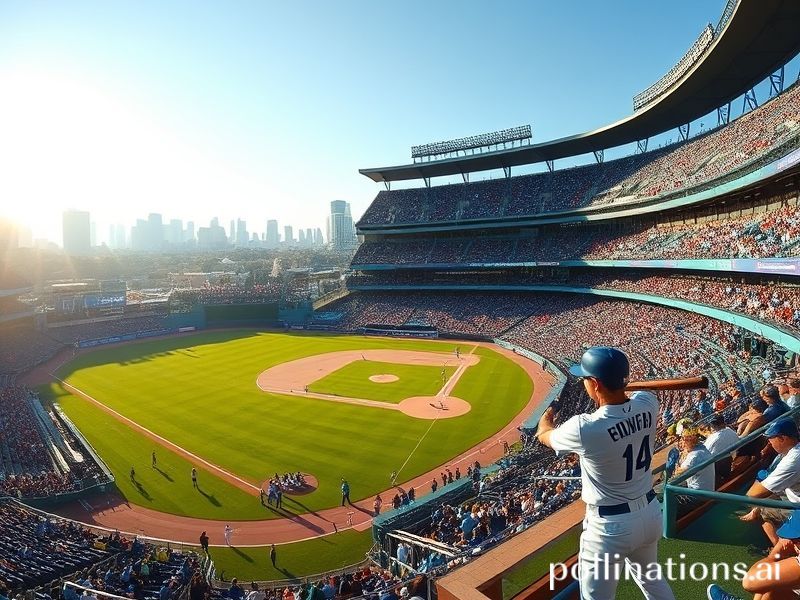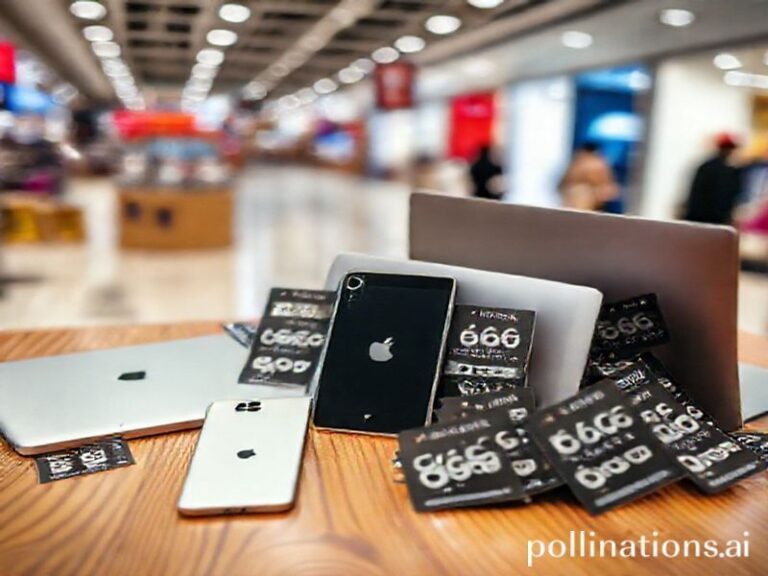Global Couch Potatoes Unite: How Today’s Dodgers Game Became Earth’s Last Shared Campfire
The Dodgers game today, live from Chavez Ravine at 7:10 p.m. Pacific Time, is being streamed to 183 countries via MLB.TV, pirated in at least 17 more, and watched in at least four time zones by people who have never set foot in Los Angeles but can name Mookie Betts’ OPS against left-handed sliders. Somewhere in Lagos, a 22-year-old data analyst wearing a Brooklyn cap bought on Etsy is arguing in a Discord thread about whether Shohei Ohtani’s interpreter’s Venmo scandal counts as a “balk of trust.” Humanity, it seems, has decided that the fate of the free world hinges on whether the boys in blue can outscore the Diamondbacks before the planet boils itself into bouillabaisse.
This is not merely baseball; it is late-stage capitalism’s most soothing opiate. A $4.6-billion franchise—owned by an insurance conglomerate, a hedge fund, and whatever Guggenheim Partners is when no one’s looking—now doubles as a planetary pacifier. While the Amazon burns and the Arctic does its best impression of a Slurpee left on the dashboard, we gather around our screens to watch grown men in pajamas swing lumber at horsehide. The broadcast cuts to a drone shot of downtown L.A., its skyline shimmering like a mirage of prosperity, and the announcer raves about the new $100-million club-level sushi bar. Somewhere in Kharkiv, a teenager streams the game on a 3G connection between air-raid sirens, rooting for Freddie Freeman because his surname sounds like “freedom.” Irony files the paperwork and applies for overtime.
The global supply chain that puts tonight’s game on your phone is a marvel of logistical nihilism. The camera riggings were assembled in Shenzhen by workers who’ve never seen a Dodger Dog; the graphics package is rendered on servers cooled by the tears of Icelandic glaciers; the betting lines are calculated in Malta, Costa Rica, and a server farm in suburban Manila that also handles Filipino call-center refunds for erectile-dysfunction pills. Every click on the “Watch Live” button pings satellites whose orbital decay is mathematically guaranteed to outlast the rule of law in at least three G-7 nations. But please, enjoy the seventh-inning stretch sponsored by a crypto exchange that just laid off 40% of its staff via emoji.
Tonight’s pitching matchup—Yamamoto versus Gallen—carries geopolitical undertones so subtle they may not exist. Yamamoto, signed for $325 million, represents Japan’s soft-power export of disciplined excellence; Gallen, a Floridian who looks like he should be selling boat insurance, embodies America’s last-ditch effort to monetize “grit.” Their fastballs are tracked by Hawkeye systems originally designed to guide NATO drones, repurposed here to tell us whether a sphere crossed an imaginary rectangle at 97.2 mph. Statcast is just the Pentagon’s hobby project wearing a Snuggie.
In the global south, cable providers bundle MLB games with Turkish soap operas and Korean variety shows in packages titled “Premium Escapism.” The cost—roughly two days’ wages in La Paz—includes a mandatory pre-roll ad reminding viewers that climate change can be offset by planting a tree for every home run, a promise as sturdy as a wet paper cutter. Meanwhile, in London, insomniac bankers hedge Yen-Dodger futures against the probability of Yamamoto’s UCL detonating before the trade deadline. The market, like a cat, knocks the vase off the shelf and blames gravity.
By the ninth inning, the score will matter less than the memes. A walk-off homer will be clipped, subtitled in Arabic, overlaid with a Nigerian Afrobeats track, and uploaded to TikTok before the outfield dust settles. Somewhere, a grandmother in São Paulo will share the clip to her family WhatsApp with the caption “Look, angels!” forgetting that her grandson is currently stuck in a Rio favela where actual angels are in short supply. The Dodgers will win or lose, the Earth will rotate another 0.000694 degrees, and we’ll all queue up tomorrow to do it again—because the alternative is reading the news.
Conclusion: The Dodgers game today is not just live; it is the last campfire around which a scattered, anxious species huddles, roasting marshmallows while the forest smolders. We cheer, we wager, we stream, we forget—until the feed buffers and, for three eternal seconds, we remember everything. Then the picture returns, the pitch is thrown, and civilization exhales. Play ball, world. The abyss is watching in 4K.







